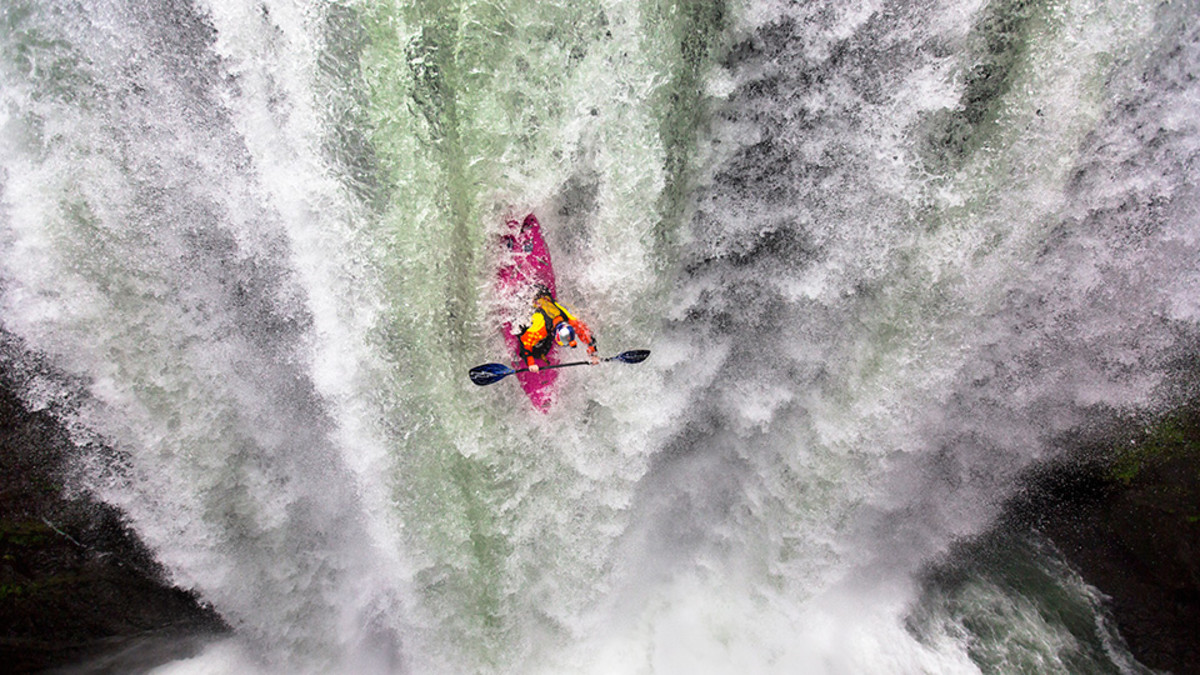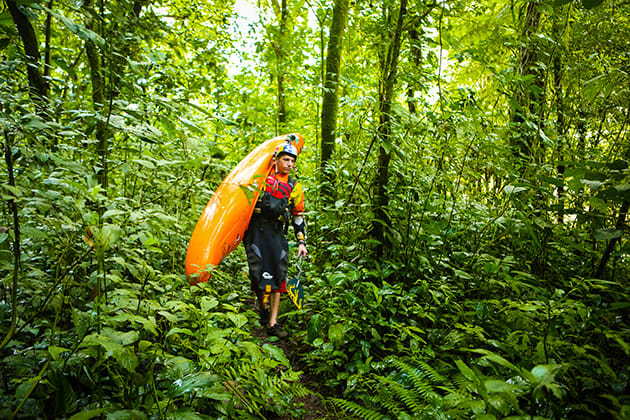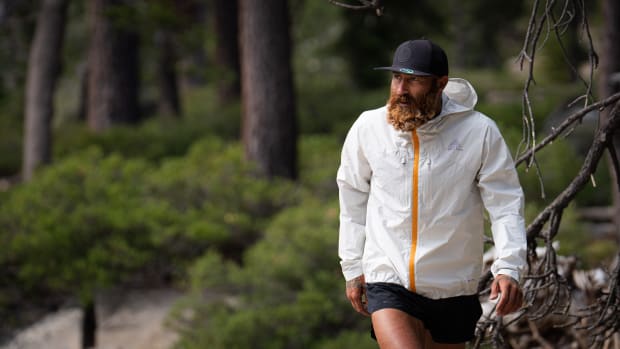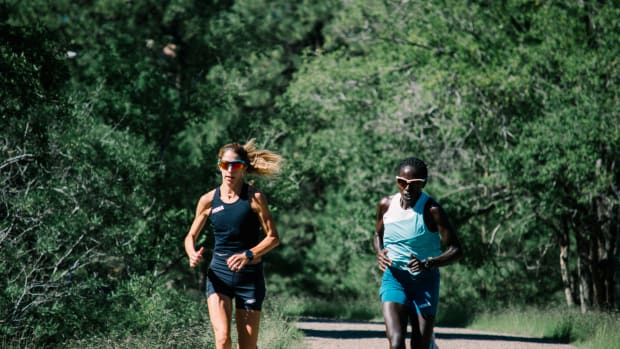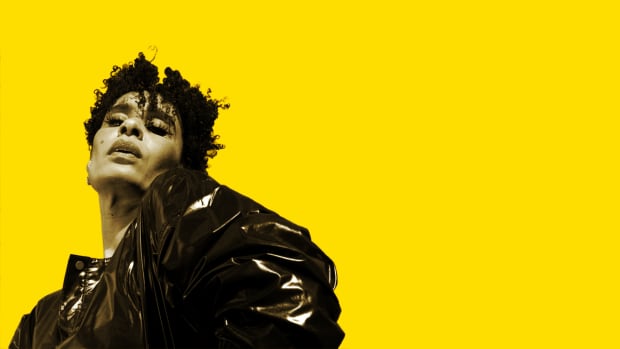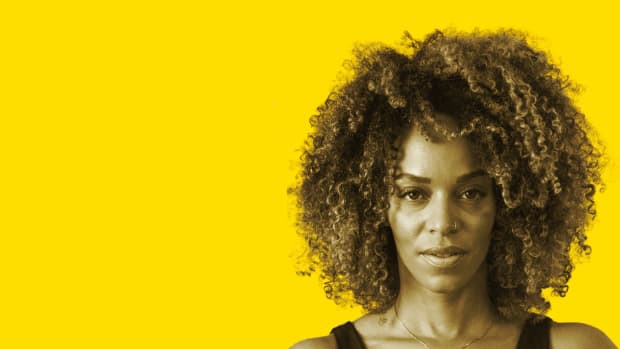Whitewater wizard Dane Jackson takes kayaking to another level
The crowd is gone. The lush riverbanks of the Waikato River near Taupo, New Zealand, have emptied and all that remains are piles of gear: empty plastic kayaks, paddles and helmets scattered on a rocky stretch next to the river. It’s the 1999 Freestyle Kayaking World Championships and the crowd of athletes training on the dynamic Full James Wave for the upcoming competition have gone home for the day. But on the rocks, where water spills over the stones in a small side channel, is a six-year-old boy. In his hands are two tiny toy kayakers, carved meticulously from the foam of kayak outfitting used to fit boats. He’s bent over the water intently, sending his toys over mini waterfalls and trying to make them cartwheel in the backwash of the little river system in the small channel.
Dane Jackson, the first son of Eric Jackson, the most successful freestyle kayaker in the history of the sport, has more than fulfilled what little expectations his father had for him. And with two world titles of his own (and more if you count the obscure paddling disciplines he practices, such as closed-deck canoeing), he has gone from playing with toy kayakers to carrying the torch for the Jackson family at a time when the sport needs household names more than ever.
SI Vault: The mystery behind why Kelly Slater still loves the sport of surfing
And while he makes his success look effortless in his kayak, whether surfing a river wave in a freestyle event or running a Class V creek race, it really has been anything but. “He was born into pain and challenge, which I think is a big part of who he is,” wrote Eric in 2013, after his son had captured his second Whitewater Grand Prix title, a high-end competition featuring freestyle surfing on gigantic river waves and creek races in difficult Class V whitewater that many in the sport consider a true world championship event. “Tolerating pain, discomfort, and not showing it, and pushing on and being happy, is a trait Dane has in spades.”
Jackson was born prematurely in 1993 at the height of Eric’s kayaking career and weighed in at just under two pounds. Doctors prepared Eric and his wife Kristine for the worst. But Eric never doubted his progeny: “I was ‘clearly in denial’ as I didn’t accept the chance that Dane might not live, and while other little babies were dying around him [in the NICU], I knew he’d be fine.”
The elder Jackson certainly passed on his will. And, unfortunately, his degenerative hearing loss. Both Eric and Dane wear hearing aids when they’re not on the water, and the 22-year-old Dane has spent significant time working on his speech over the years while home schooling with his family—his clan can still be seen at every major whitewater event during the summer in the Jackson Kayak RV, his family’s choice vehicle that his father uses to promote the kayak company bearing their name.
Now a fully developed athlete, Dane was small, hard of hearing, but an extremely gifted paddler thanks to his father’s instruction—Dane says dad Eric never pushed him, just showed him what he was into—the younger Jackson was hardened on rivers and self-sufficiency, making his own choices. “Dane loves kayaking,” says Rush Sturges, one of the sport’s preeminent filmmakers and a talented athlete himself. “He’s incredible in all the different disciplines. I used to worry that because he grew up so close to it that it might turn him away. But that definitely didn’t happen.”
And Jackson’s early struggles created humility. He has won multiple freestyle world championships, the Grand Prix (twice) and numerous other titles. But the Green Race in North Carolina—one of whitewater kayaking’s most important events—has, thus far, been his kryptonite, as he has yet to win a title on the Class V creek east of Asheville, N.C., where the sports’ best racers congregate the first weekend of November each year.
View From a Blue Moon: The making of John John Florence's surfing epic
Last weekend, Jackson was set to finally win his first title. The water was high all week leading up to the race, which sends competitors down the Narrows, an extremely steep set of rapids in the deepest part of the gorge, where paddlers run Gorilla Falls, a difficult cataract that drops more than 15 feet into a narrow chute. Jackson, one of the favorites, got caught up in Go Left above Gorilla, where kayakers must navigate a skinny slot between boulders or be pushed into the slower right line. Dane missed his line, costing him the race as he tied with the talented French paddler, Eric Deguil, for first overall.
After the event disappointment decorated his voice—which he’d lost after getting sick during training the week before. “I still haven’t won the Green Race,” he said. It was the second year he’d ended in a tie. But he didn’t utter a negative word, nor did he complain that event organizers of the rootsy, 20-year-old race still hadn’t upgraded the timing system to avoid ties; no excuses, just appreciation for the sport and the special moments that come with navigating a deep gorge—with hundreds of people on the bank watching. “You come around that corner into Gorilla, there’s nothing like it,” he said. “I’m stoked for all the racers and I’m stoked on the event.”
That humility is why people can relate to Dane Jackson—and fellow competitors respect him. He’s not loud. He speaks with his paddling, a perfect ambassador for a sport that has seen contraction in recent years as a tough economy and a number of other factors have hampered its growth. But whitewater kayaking has always been a niche endeavor, taken up by hardy enthusiasts. Besides, how can you possibly measure a sport’s breadth when its practitioners prefer to disappear into deep canyons? This tight-knit feel is what Jackson enjoys most about the sport and why he’s excited about its future.
“Kayaking has seen tough times but so many people and families are getting into it and there’s way more options now with kids’ kayaks, two-person kayaks; it’s a great community,” Jackson says. “I don’t want that to change. Years from now, no matter where I am, little events, big events, I want to be talking to kids—I love hanging out talking to people about where they go kayaking. It’s an easy group of people to be around. They’re not in it for the glory. And in the end, I just want to show people how much fun whitewater is.”
